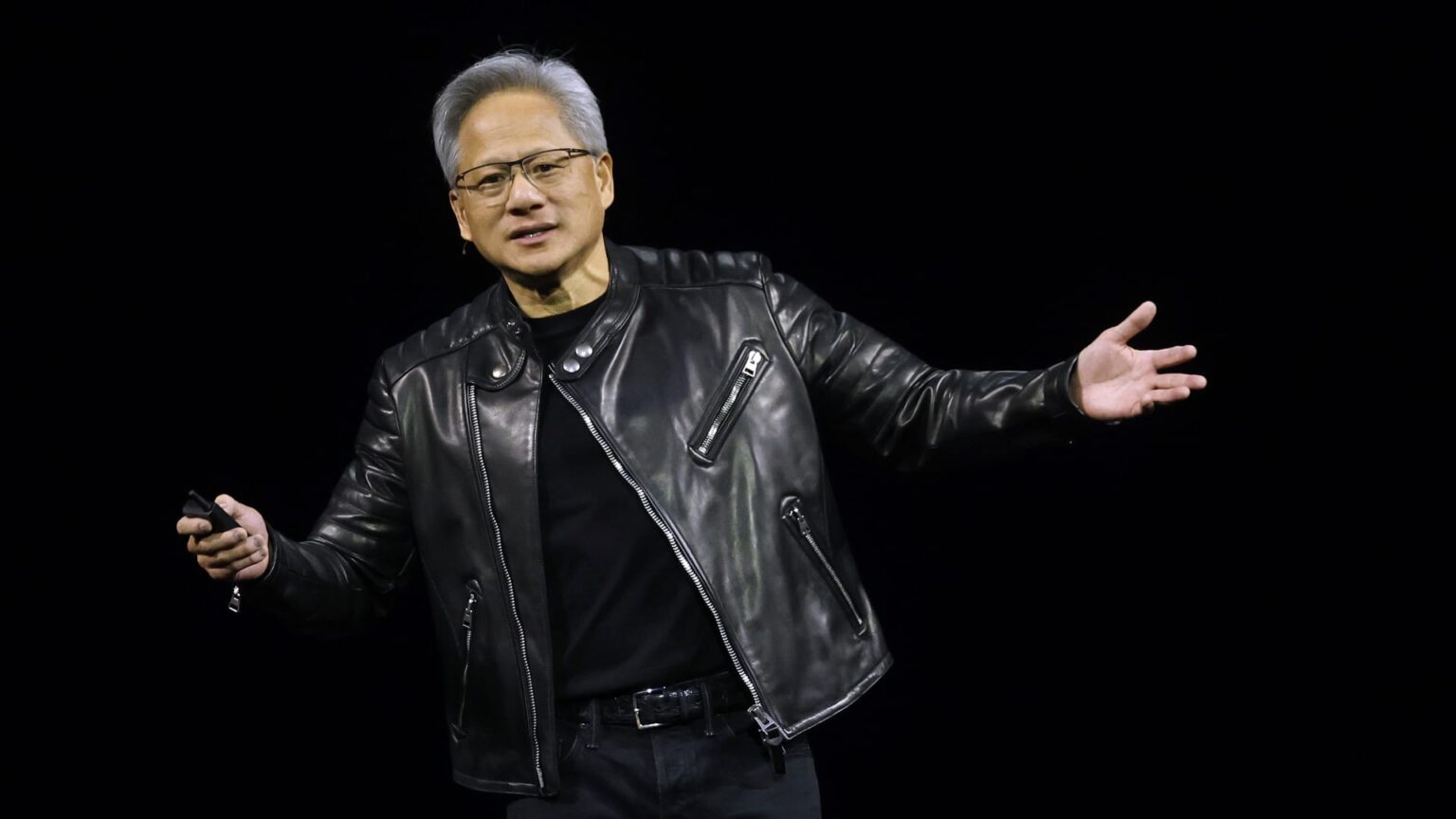Nvidia CEO Jensen Huang delivers the keynote address during the Nvidia GTC 2025 at SAP Center on March 18, 2025 in San Jose, California.
Justin Sullivan | Getty Images
Nvidia said on Tuesday that it will take a quarterly charge of about $5.5 billion tied to exporting H20 graphics processing units to China and other destinations. The stock slid more than 6% in extended trading.
On April 9, the U.S. government told Nvidia it would require a license to export the chips to China and a handful of other countries, the company said in a filing.
The disclosure is the strongest sign so far that Nvidia’s historic growth could be slowed by increased export restrictions on its chips, which the U.S. government says can be used to create supercomputers for military uses. Nvidia reports fiscal first-quarter results on May 28.
During President Biden’s administration, the U.S. restricted AI chip exports in 2022 and then updated the rules the following year to prevent the sale of more advanced AI processors. The H20 is an AI chip for China that was designed to comply with U.S. export restrictions. It generated an estimated $12 billion to $15 billion in revenue in 2024.
Nvidia CEO Jensen Huang said on the company’s last quarterly earnings call in February that revenue from China had dropped to half of pre-export control levels. Huang warned that competition in China is growing, and for the second straight year, Nvidia listed Huawei as a competitor in its annual filing.
China is Nvidia’s fourth-largest region by sales, after the U.S., Singapore, and Taiwan, according to the company’s annual report. More than half of its sales went to U.S. companies in its fiscal year that ended in January.
Nvidia’s H20 chip is comparable to the H100 and H200 AI chips used in the U.S. and other countries, but it has slower interconnection speeds and bandwidth. It’s based on a previous generation of AI architecture called Hopper introduced in 2022. Nvidia is now focusing on selling its current generation of AI chips, called Blackwell.
DeepSeek, the Chinese company whose competitive AI model R1 unveiled earlier this year upended markets, used H20 chips in its research.
In addition to the existing Chinese export controls, Nvidia also faces new restrictions on what it can export starting next month, under “AI diffusion rules” first proposed by the Biden administration.
Nvidia has argued that further controls on its chips would stifle competition and potentially even erode U.S. competitiveness in technology. The company previously said it moved some of its operations, including testing and distribution, out of China after the 2022 export controls.
At the company’s annual conference last month, when asked about Chinese export controls, Huang said Nvidia works to comply with the law, but he also noted that about half of the world’s AI researchers are from China, and many of those work at U.S.-based AI labs.
Nvidia said in Tuesday’s filing that the U.S. government told the company on Monday that the license requirement for H20 chips would be in effect “for the indefinite future.”
Nvidia shares have dropped 16% this year, largely due to President Trump’s announcement of widespread tariffs on top trading partners. While exemptions have been made on various electronics products, including smartphones, computers and semiconductors, Trump and some officials said over the weekend that the reprieve was temporary and part of plans to apply separate tariffs to the sector.
Shares of Advanced Micro Devices dropped more than 7% in after-hours trading on Tuesday following Nvidia’s disclosure. AI chipmaker Broadcom fell almost 4%.
WATCH: Nvidia says U.S. requires license to export H20 products to China

https://www.cnbc.com/2025/04/15/nvidia-says-it-will-record-5point5-billion-quarterly-charge-tied-to-h20-processors-exported-to-china.html


